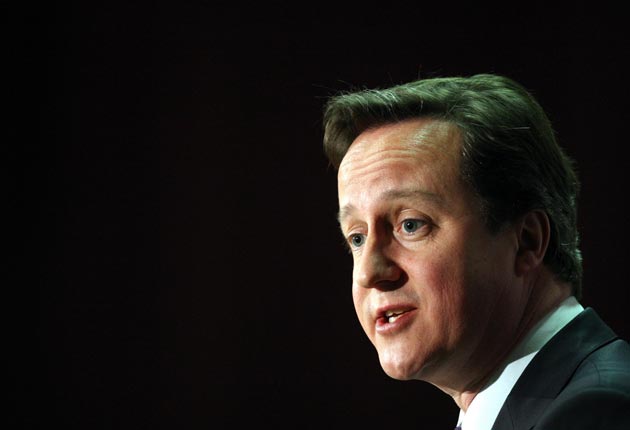Banks must honour commitments, says David Cameron

David Cameron warned the banks today that they must honour their commitments to increase lending to business.
Appearing before the Commons Liaison Committee, the Prime Minister made clear that the banks could be hit with a fresh round of taxes if they did not increase the flow of credit to firms.
After the Project Merlin agreement between the banks and the Government in February, Mr Cameron admitted the latest set of bank lending figures had been "disappointing".
But he said he believed the banks understood it was in their own interest to increase business borrowing, otherwise ministers could go back on their assurances not to impose new levies on profits and bonuses.
"The banks recognise that it is extremely unhealthy in a modern, competitive market economy to be in a permanent state of war with the politicians. It was in their interests to reach an agreement," he said.
"I think that is quite a sanction. It was a deal, it was an agreement and they have to meet their side of the agreement or we don't have to meet ours."
Mr Cameron said that it had been "very much my initiative" to get an agreement with the banks after the wave of public anger towards the sector following the financial collapse of 2008.
But he said that the deal should be given time to show that it could work and deliver the results the Government has been looking for.
"I think the first step should be to try to make Project Merlin work in the way that was intended," he said.
"I totally recognise there is a problem. That is why I was instrumental in trying to get Project Merlin under way."
Mr Cameron said that when the coalition came to power, Britain was saddled with "the most over-indebted banks, the most over-leveraged households, the most over-borrowed government, the most out-of-control inflation, the fastest increases in government spending" compared with its international competitors.
With three-quarters of growth coming from government spending, housing, finance and immigration, it was "not a sustainable model for the economy", he said.
"Whoever was sitting here as Prime Minister right now would be having to rebalance the economy to try to bring about a situation where growth comes about from manufacturing, from exports, from technology, from investment, rather than simply pumping up the bubble," he said.
He accepted that he was relying on a large increase in private sector employment to take up the decline in jobs in the public sector, but said the "good news" was that there were 400,000 more people employed than last year.
The Government's ability to use traditional methods to stimulate growth was limited by circumstances, he said: "There's no great fiscal measure you could take now because we inherited a situation where the Government was over-borrowed. There's no great monetary step you can take because interest rates are as low as they are.
"We have got to look at what we can do to help the supply side of the economy."
Mr Cameron said that the Government's ability to keep bond yields down over the past year was a key indicator of the success of its economic policy.
"My view is if we hadn't taken steps to set out a credible path for deficit reduction, we would have seen British interest rates go up rather than down and the whole rebalancing picture of encouraging manufacturing, exports, investment and business growth would have been absolutely laid out flat," he said.
"That's the key judgment we had to make and I am sure it was the right judgment."
But Labour's Margaret Hodge, the chairman of the influential Commons Public Accounts Committee, told the Prime Minister: "It feels to me a lot like we are not achieving growth, we've got massive inflation, it feels like an era of stagflation, where the people who are suffering are really the savers."
Join our commenting forum
Join thought-provoking conversations, follow other Independent readers and see their replies
Comments
Bookmark popover
Removed from bookmarks